
-
 One of Lima's top beaches to close Sunday over pollution
One of Lima's top beaches to close Sunday over pollution
-
'Nothing is impossible': Shaidorov shocks favourite Malinin to make history

-
 Malinin wilts at Olympics as Heraskevych loses ban appeal
Malinin wilts at Olympics as Heraskevych loses ban appeal
-
Bhatia joins Hisatsune in Pebble Beach lead as Fowler surges

-
 Malinin meltdown hands Shaidorov Olympic men's figure skating gold
Malinin meltdown hands Shaidorov Olympic men's figure skating gold
-
Top seed Fritz makes ATP Dallas semis with fantastic finish

-
 Patriots star receiver Diggs pleads not guilty to assault charges
Patriots star receiver Diggs pleads not guilty to assault charges
-
Havana refinery fire under control as Cuba battles fuel shortages

-
 Peru Congress to debate impeachment of interim president on Tuesday
Peru Congress to debate impeachment of interim president on Tuesday
-
Snowboard veteran James targets 2030 Games after Olympic heartbreak

-
 Costa Rica digs up mastodon, giant sloth bones in major archaeological find
Costa Rica digs up mastodon, giant sloth bones in major archaeological find
-
Trump says change of power in Iran would be 'best thing'

-
 Paris police shoot dead knife man at Arc de Triomphe
Paris police shoot dead knife man at Arc de Triomphe
-
Japan's Totsuka wins Olympic halfpipe thriller to deny James elusive gold

-
 Canada's PM due in mass shooting town as new details emerge
Canada's PM due in mass shooting town as new details emerge
-
Neto treble fires Chelsea's FA Cup rout of Hull

-
 Arbitrator rules NFL union 'report cards' must stay private
Arbitrator rules NFL union 'report cards' must stay private
-
Dortmund thump Mainz to close in on Bayern

-
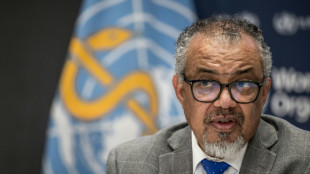 WHO sets out concerns over US vaccine trial in G.Bissau
WHO sets out concerns over US vaccine trial in G.Bissau
-
Skeleton racer Weston wins Olympic gold for Britain

-
 Ex-CNN anchor pleads not guilty to charges from US church protest
Ex-CNN anchor pleads not guilty to charges from US church protest
-
Berlin premiere for pic on jazz piano legend Bill Evans

-
 Fire at refinery in Havana as Cuba battles fuel shortages
Fire at refinery in Havana as Cuba battles fuel shortages
-
A Friday night concert in Kyiv to 'warm souls'

-
 PSG stunned by rampant Rennes, giving Lens chance to move top
PSG stunned by rampant Rennes, giving Lens chance to move top
-
Japan's Totsuka wins Olympic halfpipe thriller as James misses out on gold

-
 Indian writer Roy pulls out of Berlin Film Festival over Gaza row
Indian writer Roy pulls out of Berlin Film Festival over Gaza row
-
Conflicts turning on civilians, warns Red Cross chief
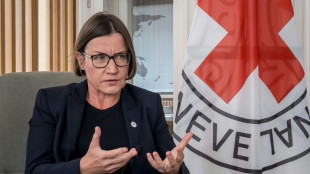
-
 Europe calls for US reset at security talks
Europe calls for US reset at security talks
-
Peru leader under investigation for influence peddling

-
 Rising star Mboko sets up Qatar Open final against Muchova
Rising star Mboko sets up Qatar Open final against Muchova
-
Canada PM to mourn with grieving town, new details emerge on shooter

-
 US waives Venezuela oil sanctions as Trump says expects to visit
US waives Venezuela oil sanctions as Trump says expects to visit
-
NBA star Chris Paul retires at age 40 after 21 seasons

-
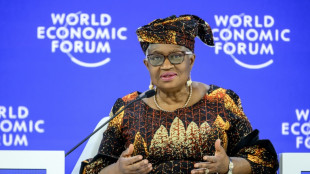 WTO chief urges China to shift on trade surplus
WTO chief urges China to shift on trade surplus
-
Vonn hoping to return to USA after fourth surgery on broken leg

-
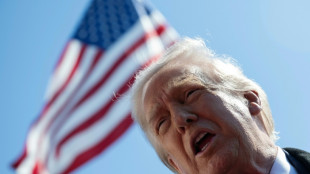 Trump sending second aircraft carrier to pile pressure on Iran
Trump sending second aircraft carrier to pile pressure on Iran
-
Heraskevych loses Olympics disqualification appeal, Malinin eyes second gold

-
 Mercedes have 'taken a step back': Russell
Mercedes have 'taken a step back': Russell
-
Madagascar cyclone death toll rises to 40, water, power still out

-
 Earl says England inspired by last year's Calcutta Cup
Earl says England inspired by last year's Calcutta Cup
-
USA romp past Dutch in T20 World Cup to keep Super Eight hopes alive

-
 De Minaur scraps past local legend van de Zandschulp
De Minaur scraps past local legend van de Zandschulp
-
Ukrainian Heraskevych loses appeal against Olympics disqualification

-
 Ghana rallies round traditional tunic after foreign mockery
Ghana rallies round traditional tunic after foreign mockery
-
Forest set to hire former Wolves boss Pereira: reports

-
 England rugby captain Itoje slams Ratcliffe's 'ridiculous' immigration comments
England rugby captain Itoje slams Ratcliffe's 'ridiculous' immigration comments
-
Europe should speak to Russia with 'one voice', Putin foe says

-
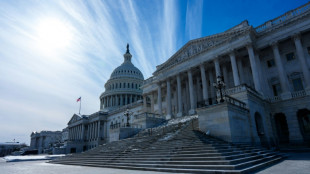 US Congress impasse over immigration set to trigger partial shutdown
US Congress impasse over immigration set to trigger partial shutdown
-
US to deploy new aircraft carrier to Middle East as Trump warns Iran


Hungary's 'chilling' foreign influence office starts up
A new government agency to "protect Hungary's sovereignty" which starts work Thursday will have a "chilling effect" on the country's democracy, critics warn.
Media watchdog Reporters Without Borders (RSF) branded it a "new, dangerous provocation by Prime Minister Viktor Orban", who has passed a slew of laws tightening his control and muzzling the press since he came back to power nearly 14 years ago.
The US ambassador to Budapest David Pressman said it "made Moscow's foreign agent law look mild and meek".
The latest laws to curb foreign influence come ahead of crucial EU and municipal elections in June.
They include a Sovereignty Protection Office with powers to "identify and investigate organisations that receive funding from abroad... aimed at influencing the will of voters".
Orban's ruling Fidesz party argues the law will "close a loophole" of "electoral trickery" after claims opposition parties received funds from a US-based NGO in the run-up to the 2022 elections.
But critics fear the law could be used to also hamper the work of rights groups and others dependent on funds from abroad.
"It creates an atmosphere where receiving money from abroad is presented as a question of legitimacy," Miklos Ligeti, head of legal at Transparency International Hungary, told AFP.
- 'Propagandist' at helm -
The new agency is headed by controversial political scientist Tamas Lanczi, notorious for his stint as editor-in-chief at a now-closed Orban-supporting economic weekly magazine.
In 2018 it published the names of some 200 civil society workers, academics and journalists, linking them -- some posthumously -- to US financier and philanthropist George Soros, a bete noire of Orban's.
A court later found the list to be "unlawful" and "intimidating".
"Lanczi is a well-trained, well-embedded propagandist," Zoltan Ranschburg, senior analyst of the liberal-leaning Republikon Institute, told AFP.
His agency has broad powers to gather information, cooperate with state agencies and make reports, raising fears Lanczi could oversee more smear campaigns.
But Lanczi, 46, who has spent his career in the orbit of Orban's party, brushed aside criticism as based on "preconceptions".
While his agency does not have the power to sanction anyone on its own, any candidate standing for election that accepts foreign funding could face up to three years in prison.
Another fear is that it could effectively "cripple" media companies by asking them for data "without limit", creating "a tremendous amount of work", according to Agnes Urban, an expert from Mertek Media Monitor watchdog.
"It could lead to a chilling effect with journalists steering clear of sensitive topics to avoid getting into its sights," she told AFP.
Ten Hungarian media outlets warned in a letter that the law "is capable of severely restricting the freedom of the press".
The central European country has fallen from 25th place in RSF's press freedom index when Orban came back to power to 72nd place.
- Dependant on foreign funds -
Watchdog organisations in Hungary need some foreign funding, according to Transparency's International Ligeti, because the public's willingness to donate is low and NGOs who criticise the government are unable to access state grants.
"They cannot imagine we get foreign grants for monitoring and doing anti-corruption advocacy without any instructions on the conclusions," Ligeti said.
The ruling coalition already passed a law in 2017 obliging NGOs to identify as "foreign-funded organisations" if they received funds from abroad.
But it was repealed after the European Court of Justice deemed it against EU law.
The Council of Europe called on Hungary to abandon the latest bill before it passed in December, saying it "poses a significant risk to human rights".
The European Commission has also expressed concern about the law in a letter to the Hungarian government in December, according to EU Justice Commissioner Didier Reynders.
He told the European Parliament last week that "in the absence of a satisfactory response, the Commission will not hesitate to take the necessary steps" to ensure compliance with EU law.
Th.Berger--AMWN
